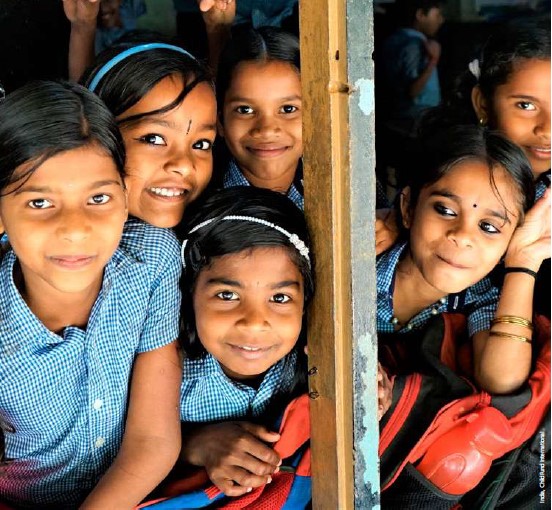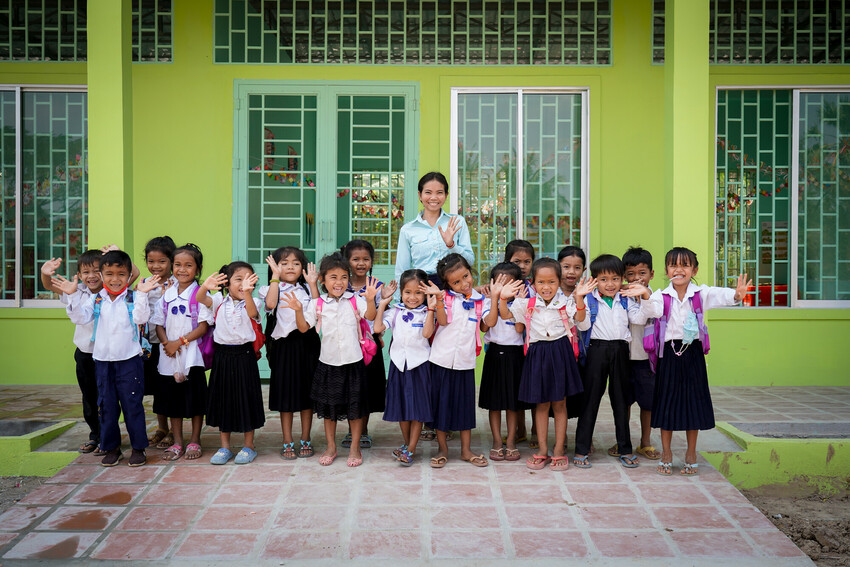Today, 1 in 2 children and more than 1 in 3 women live in countries where they experience some
form of exclusion. Without drastic change, it will take 182 years to achieve a level of adequate inclusion for them.
An annual report published by ChildFund member WeWorld finds a world that is still profoundly unequal, where 1 in 2 children and more than 1 in 3 women live in countries where they experience different forms of exclusion. Such low levels of inclusion—from an economic, social and fundamental rights point of view are among the main findings of WeWorld Index 2022 – Women and Children Breaking Barriers to Build the Future.
WeWorld has been defending the rights of women and children in 27 countries, including Italy, for the past 50 years, and has been publishing the Index since 2015. The 2022 report, measuring the level of inclusion of women and children in 166 countries groups together more than 30 indicators related to four building blocks that are essential for the implementation of women’s and children’s rights. These fundamental building blocks—health, education, the economy, and society—are inextricably linked to the United Nations 2030 Sustainable Development Agenda—a blueprint for achieving a better and more sustainable future for all.
In the years since WeWorld began analyzing the data, it has continued to track key information to raise international awareness of the essentials needed if women and children are to achieve a better and more sustainable future. The 2022 Index is the eighth Index released by WeWorld and the first one released as an Alliance-wide effort of ChildFund.

Regrettably, as this year’s report highlights, the world is not on target to achieve the SDGs, and progress toward improving the lives of the world’s most vulnerable groups of people has slowed. Further, new and evolving risks are currently affecting millions of women and children, and they inevitably will affect exponentially more, if left unaddressed. These risks include global pandemics, armed conflicts, drought conditions affecting food production, and rising global temperatures.
The Index delves into the overlapping effects of these world crises and the impact of five key barriers on children: poverty, conflicts, forced migration, climate change, and online risks. The Index explores how the effects of these five barriers intertwine with each other, creating a threatening combination that could potentially compromise the future of an entire generation and of those to come. Globally, one in ten people live in extreme poverty, with children being twice as likely to be poor as adults. In 2020, one in six children lived in a conflict zone and almost half of the world’s refugee children were unable to attend school. Every day seven victims of online child sexual exploitation are identified, and children today will face around three times as many climate disasters as their grandparents.
The Index, which includes all countries with a population of more than 200,000 with available data, shows that in seven years’ time, the world has improved by only 1.5 points on the WeWorld Index. This means, at this rate, it would take 182 years to achieve a level of adequate inclusion for women and children globally. Northern Europe and continental Europe rank at the top of being the most inclusive areas for women and children. The countries of Norway, Iceland and Sweden lead the rankings, followed by Denmark and Finland. The three worst countries for inclusion of women and children are Central African Republic, South Sudan and Chad.
On November 9, 2022 ChildFund representatives and subject matter experts came together to explore the impact of the key barriers, particularly on children. Speakers included The Honorable Mitch Fifield, Ambassador and Permanent Representative of Australia to the United Nations; Marco Chiesara, President of WeWorld; David Stewart, Chief of Child Poverty and Social Protection at UNICEF; Maria Groenewald, Director of VOICE; and ChildFund Alliance Secretary General Meg Gardinier, among others.
